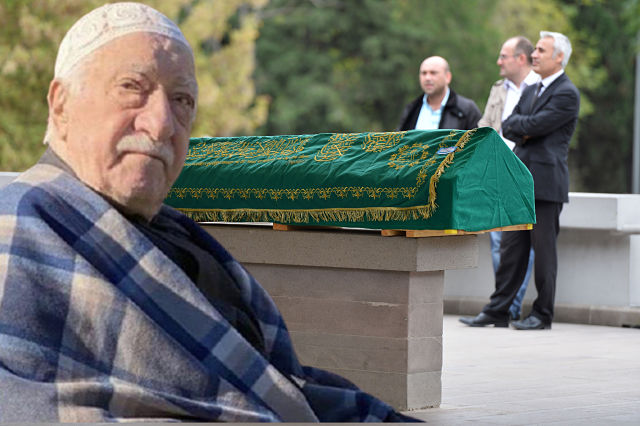The news of the alleged death of Fethullah Gulen in his residence in Pennsylvania, spread by the Turkish opposition channel ODA TV, has spread worldwide. At the time of writing, there is no confirmation or denial of the news. But there are many speculations and crazy comparisons.
For example, that Gulen was poisoned on the orders of Erdogan, with the former being compared to Trotsky and the latter to Stalin, on whose orders Gulen was killed. However, the assumption that an 80-year-old man with huge bags under his eyes, who was recently seen sitting in a wheelchair, could only have died because he was killed sounds insane in itself.
From a purely political point of view, the last thing Erdogan is interested in right now is the killing of an old man that could jeopardize Turkish-American relations, which are crucial for the country in many areas. If there are any interested parties in such an event, it is likely to be Erdogan’s enemies, and not excluded from Gulen’s circle, if someone there wants to quickly change the power in his company. However, let us repeat that all such considerations are nothing more than speculations at the moment.
What is more important is not whether Gulen is physically alive or not, but whether his cause is alive and in what condition it is. At the time, the rise of his schools and organization was part of the policy of the so-called “Turkish-Islamic synthesis” initiated by the military government of Kenan Evren and continued by President Turgut Ozal (https://golosislama.com/news.php?id=34311). We also wrote about the foreign policy context of that era on our website (https://golosislama.com/news.php?id=34225).
The idea of the Turkish Union, which was seen as a counterweight to both pro-Soviet and pro-Iranian forces, found support in serious circles. And it must be said that the contribution of Gulen’s jamaats to creating a foundation for such a Turkish unity through the establishment of Turkish lyceums in the Turkish republics of the former USSR and Russia was quite significant at the time when communism and the Iron Curtain fell. As was his contribution to the rise to power and maintenance of power of pro-Islamic political forces in Turkey at the turn of the old and new centuries.
But then something went wrong. And what is known is that, whether due to his own ambitions or at the insistence of external forces behind him, Gulen’s “Jamaat”, which by then had become a “parallel state” in Turkey, turned against the main state in the person of the power of his former ally Recep Tayyip Erdogan, with whom it became enemies from a certain moment on. The rest is also known – the failed coup attempt associated with the “parallel state”, its subsequent defeat and the consolidation of the “deep state” at its peak on a new old basis – the Turkish-Islamic synthesis. The circle is closed.
And we see that the news of Gulen’s death spread almost simultaneously with the news of the birth of a new union of Turkish states (https://golosislama.com/news.php?id=40268). A union whose foundation, it seemed, was laid by Gulen and his activities in the Turkish countries, but which was finally established by his sworn enemy. Let us not speculate about Gulen’s physical condition, but it cannot be ruled out that this news has weakened him. At least politically, because it turned out that the one he opposed not only crushed his jamaats, but also successfully implemented the idea they promoted. In history, it often happens that the seeds bear fruit, but not to the sower’s liking and not as he would have wished. In this case, many people sowed these seeds, including Gulen, but he lacked the patience to wait for them to sprout and the wisdom to help the gardener instead of trying to overthrow him and endanger the common garden.
Therefore, politically speaking, Gulen’s era has ended anyway, regardless of whether he is dead or not. One day, Erdogan’s era will come to an end like any other mortal’s. What is important is that after the death or retirement of any leader, he leaves a valuable legacy for future generations and remains in their memory as a creator who brought benefits to the Islamic nation, and not as a destroyer and hostage of his own ego.

